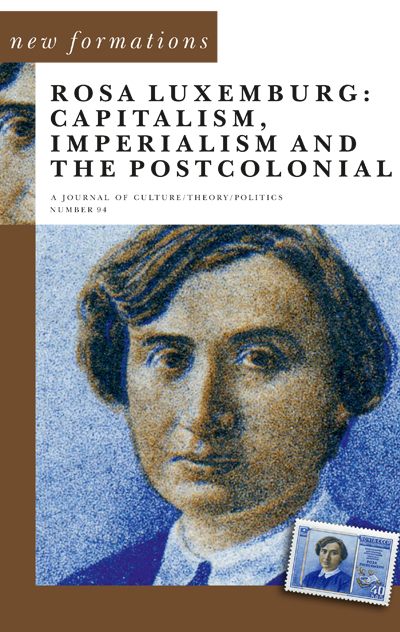
Non-Linear pathways to social transformation: Rosa Luxemburg and the post-colonial condition
New Formations - Print ISSN 0950-2378 - Online ISSN 1741-0789
Volume 2018 Number 94
Non-Linear pathways to social transformation: Rosa Luxemburg and the post-colonial condition
Peter Hudis
DOI: 10.3898/NEWF:94.05.2018
Abstract
Rosa Luxemburg’s The Accumulation of Capital, which spurred intense discussion and debate from the moment of its publication in 1913, has taken on new resonance in light of the global expansion of capitalism, the destruction of indigenous cultures and habitats, and capital’s reconfiguration of public and private space. No less important is a series of additional works by Luxemburg that address these themes, but which have received far less attention. These include her notes and lectures on pre-capitalist society that were composed as part of her work as a teacher at the German Social Democratic Party’s school in Berlin from 1907-14 and her Introduction to Political Economy, which first led her to confront the problem delineated in The Accumulation of Capital. These writings shed new light on the contributions as well as the limitations of her understanding of the internal and external limits to capital accumulation, especially insofar as the ability of non-capitalist formations and practices to survive the domination of capital is concerned. Luxemburg’s understanding of the impact of capitalism in undermining non-capitalist strata has crucial ramifications for working out a viable alternative to capitalism today.
To cite this article
Peter Hudis (2018) Non-Linear pathways to social transformation: Rosa Luxemburg and the post-colonial condition, New Formations, 2018(94). https://doi.org/10.3898/NEWF:94.05.2018
